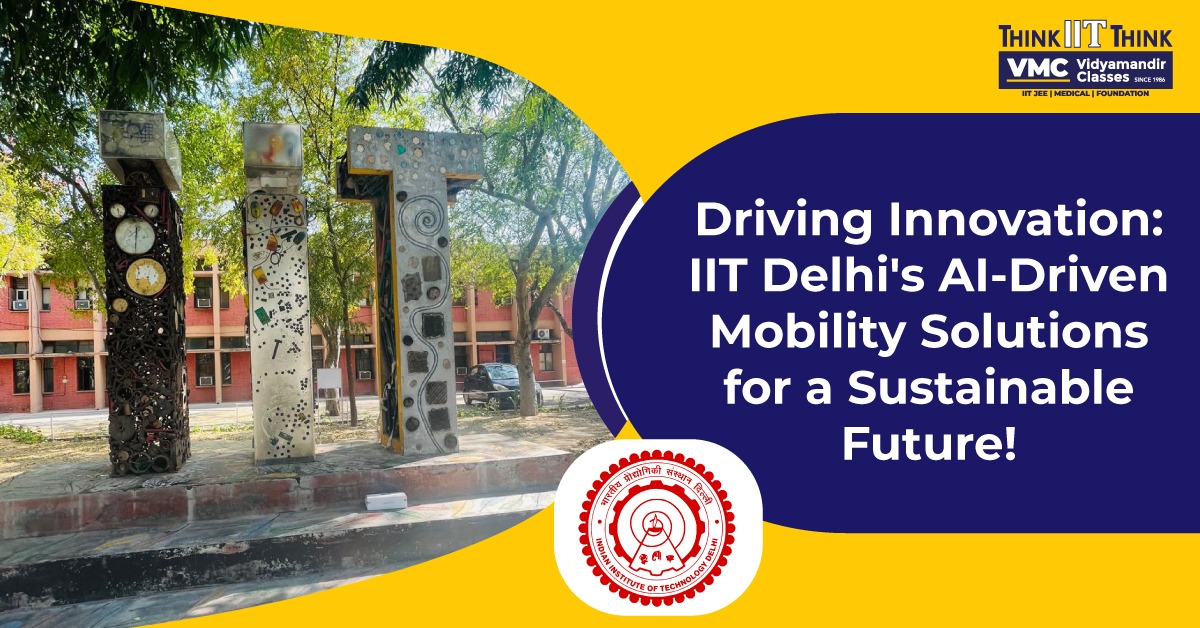Driving Innovation: IIT Delhi’s AI-Driven Mobility Solutions for a Sustainable Future!
 Posted On
Posted On
190 total views, 1 views today
In a significant move towards revolutionizing the mobility sector, the Indian Institute of Technology (IIT) Delhi has forged a partnership with Honda Cars India Limited (HCIL) through a Memorandum of Understanding (MoU). This collaboration focuses on advancing Honda’s Cooperative Intelligence (CI), an innovative approach to artificial intelligence that fosters seamless interaction between machines and humans through enhanced communication and cooperative actions. By integrating insights from environmental, scene, and intention understanding, this partnership aims to reshape how we perceive and interact with technology.
The Significance of the MoU
The formal agreement was signed by notable figures from both institutions, including Professor Preeti Ranjan Panda and Professor Naresh Bhatnagar from IIT Delhi, along with Udit Kumar, the Senior Vice President and Director of HCIL. The signing ceremony, graced by Professor Rangan Banerjee, Director of IIT Delhi, and Takuya Tsumura, President and CEO of HCIL, underscores the strategic importance of this alliance in the context of evolving technological landscapes.
This collaboration is not merely a formality; it symbolizes a robust commitment to developing cutting-edge technologies aimed at improving traffic safety and fostering the potential for automated driving. As urban mobility challenges intensify, the integration of CI into vehicles promises significant advancements in driver assistance and autonomous driving systems.
Collaborative Research for Future Technologies
Under this collaborative framework, engineers from HCIL and Honda R&D Co., Ltd.—Honda’s research and development subsidiary—will work closely with researchers from IIT Delhi. Their focus will be on refining the foundational technologies of CI. The partnership aims to explore joint research themes that include the recognition of surrounding environments and the cultivation of cooperative behavior. These efforts will leverage state-of-the-art AI technologies, enabling Honda and IIT Delhi to create solutions that extend beyond the confines of laboratory settings.
By fostering an environment of co-creation, the collaboration aims to cultivate deeper insights into both academic and industry perspectives. This symbiotic relationship will enhance innovation, allowing engineers and IIT Delhi students to collaboratively engage in planning, designing, developing, and testing new technologies.
Real-World Applications in Urban Settings
A pivotal aspect of this partnership is the practical application of research findings in real-world scenarios. Honda intends to test driving assistance and automated driving technologies in the suburban landscapes of Delhi. This initiative is particularly noteworthy, as it will allow the team to assess the effectiveness of CI in the context of complex urban traffic conditions. By conducting these trials in a bustling city environment, both Honda and IIT Delhi aim to enhance their core technologies and adapt them for global applications, including specific use cases in India.
The potential impact of this research extends far beyond the immediate benefits of reducing traffic collisions. By improving the interaction between humans and machines, the initiative is poised to enhance overall mobility experiences, making transportation safer and more efficient.
The Future of Sustainable Mobility
Professor Preeti Ranjan Panda emphasizes that the mobility sector is undergoing transformative changes, driven by an increasing demand for sustainable, functional products. As artificial intelligence continues to shape the future of mobility, this partnership aims to combine IIT Delhi’s cutting-edge research with Honda’s practical application expertise. The goal is to accelerate innovation and develop solutions that not only meet customer needs but also serve societal interests across a spectrum of applications.
With the world leaning toward sustainable practices, the development of smart technologies that promote efficient transportation is more critical than ever. The integration of AI in mobility solutions could lead to a greener future, reducing carbon footprints and enhancing overall environmental sustainability.
The Road Ahead
As IIT Delhi and Honda embark on this promising journey together, the future looks bright for cooperative intelligence in mobility. The collaboration not only highlights the importance of academic-industry partnerships but also signifies a shared commitment to addressing pressing challenges in urban mobility.
In the coming years, we can anticipate significant advancements in technologies that empower safer and smarter driving experiences. Through their joint efforts, IIT Delhi and Honda are setting the stage for groundbreaking innovations that will not only enhance the automotive industry but also contribute positively to societal progress.
Closing Thoughts
The alliance between IIT Delhi and Honda marks a pivotal moment in the evolution of mobility technologies. By harnessing the power of cooperative intelligence, this collaboration has the potential to redefine how we interact with vehicles and the environments around us. As the research progresses, the insights gained will undoubtedly pave the way for a future where automated driving and advanced safety systems become the norm, ultimately leading to safer roads and more sustainable urban environments. In summary, this partnership represents a forward-thinking approach to the challenges of modern mobility, aligning technological advancement with societal needs. As we move forward, the collaboration between IIT Delhi and Honda will likely serve as a blueprint for similar initiatives, driving innovation and fostering a more connected world.




